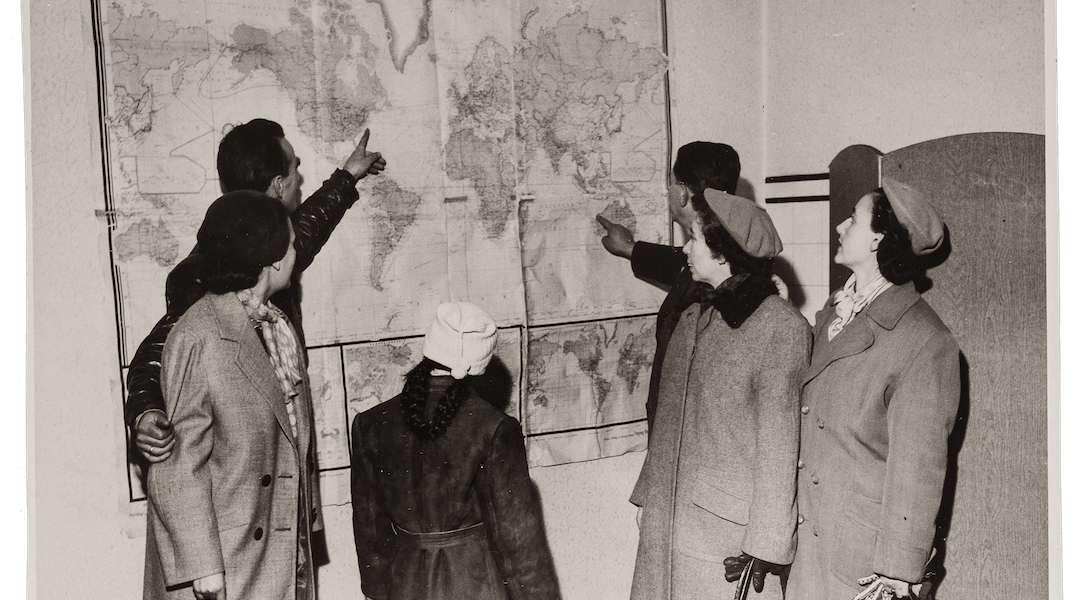First Step to Reflecting Jews’ Real Values? Focus Less on Israel.

Image by Getty Images
If it’s not American Jewish liberals who have betrayed Israel, but our organizations that have betrayed us — — then that leaves us with a question: What would a genuine Jewish public agenda look like?
Here’s a quick recap of how we got to where we are: When the main American Jewish advocacy organizations arose a century ago to defend Jews against anti-Semitism, they gained little traction — until World War II galvanized them to militancy. Beginning in 1945, they joined with black equal-rights organizations in a campaign to outlaw discrimination “on the basis of race or religion.” Over the next 20 years, the coalition added unions and churches and pursued a broad agenda of social reform. For Jews, fighting for an open society promised equal rights for us and for other minorities. By the mid-1960s the Jewish community was known as a moral beacon and a political powerhouse.
Beginning around 1966, the black-Jewish coalition began to fracture over a range of diverging interests. Almost simultaneously, the Six Day War of 1967 gave the Jewish organizations an urgent new agenda: defending Israel. Since then, the major Jewish advocacy agencies have steadily narrowed their focus to a conservative-tinged foreign policy agenda that trumps all else.
American Jews, still overwhelmingly liberal, long ago stopped expecting the organized community’s agenda to reflect their interests or values. Most have simply tuned out the organizations. For most non-Orthodox Jews, Judaism takes place in the home. What was once the Jewish public square is now a gated community for insiders.
But, like it or not, individuals’ opinions rarely influence broader society unless they organize. And individuals rarely band together effectively without an agenda combining shared values and self-interest. That’s why we desperately need a renewed, genuine agenda.
To see what that would look like, start here: As a community that’s both religious and ethnic, American Jewry deserves an agenda that’s rooted in the opinions of the Jewish public, yet tempered by the values of our heritage. Defending Israel must be high on the agenda, given the lessons of history. But it shouldn’t displace the views of American Jews.
Those views aren’t a mystery. Few American subgroups are surveyed as assiduously as the Jewish community. What’s astounding is how much energy goes into divining American Jews’ opinions — and then, how utterly they’re ignored by the agencies that purport to speak for them.
Consider this: Two different surveys in 2012 queried Jews’ feelings about Israel. One, by the Workmen’s Circle, asked how “attached to Israel” they were. The other, by the American Jewish Committee, asked if they agreed that “caring about Israel is a very important part of my being a Jew.” Both got just over 70% affirmation. Both were divided roughly evenly between “strongly” and “somewhat.” Clearly, American Jews value Israel.
But they are, first of all, American Jews with their own needs. When AJC asked those same respondents to pick from a list “the most important issue to you in deciding how you will vote in the 2012 presidential election,” 61.5% chose “economy” and another 21.5% picked either health care, taxes or Social Security. A grand total of 9.5% chose U.S.-Israel relations, national security or “Iran’s nuclear program.”
That’s not an anomaly. A 1989 AJC survey asked Jews how important various “symbols or concepts” were in their “sense of being Jewish.” Israel came in seventh out of 12, behind the Holocaust, the High Holidays, American anti-Semitism, God, the Torah and Passover (but ahead of Jewish law, the United Jewish Appeal and “the Jewish radical tradition”).
Here’s another way to reckon a Jewish public agenda: Look at where we’re united and divided. On Israeli policy, for starters, American Jews are nearly always split roughly 5-to-4. A 2006 AJC survey found respondents favoring the establishment of a Palestinian state 54%–38%, but opposing a compromise on Jerusalem 52%–40%. That division on Israel has been consistent for decades.
The issues that actually unite American Jews are social issues like gender and reproductive rights, immigration and church-state separation. Those find lopsided liberal majorities of 80% or even 90%.
In fact, no issue unites American Jews more than reproductive rights. Numerous surveys have found Jews supporting legal abortion by margins in the neighborhood of 9-to-1. Those in favor are usually divided evenly between “in all cases” and “in most cases.” By contrast, a May 2015 Gallup poll found Americans overall calling themselves “pro-choice” by a slight majority over “pro-life” (50%–44%). It was America’s first pro-choice majority since 2008.
Abortion is an issue where Jewish public opinion and Jewish tradition actually reinforce each other. In the Talmud, a fetus is not considered a person until the head emerges. Before that, it’s deemed part of the mother’s body. Rabbinic law requires abortion in cases of risk to the mother’s life, and some interpretations include her mental health or welfare. The bottom line: Banning abortion not only offends Jews — it infringes on Jewish religious freedom. A Jewish agenda should give the issue top priority, not the whispered support it currently gets from some of our supposedly representative organizations.
Another area where tradition and public opinion overlap is economic justice. The Torah and Talmud devote more attention to workers’ rights than to kosher food. Torah law imposes numerous obligatory levies and curbs on property owners to protect workers and the poor, like gleaning the fields and on-time pay. The rare contemporary surveys that bother to examine Jewish opinion on economics (here and here) find that support for such issues as union rights, raised taxes for the rich and increased government programs for the poor typically runs in the 2-to-1 range, or 60%–70%. Yet the organized community has ignored this for decades.
Added as a postscript: I started off by saying that “Israel should be high on the agenda, given the lessons of history.” That’s not an idle thought. Caring for our fellow Jews has always been an essential duty of any Jewish community, wherever we’ve lived. Moreover, the rebirth of Israel in the last century has fundamentally changed the place of the Jewish people in the world community.
What we do affects Israel’s fate. And what Israel does affects our fate. When we stand with a strong Israel, we’re stronger. When Israel is admired in the world, we’re admired. And when Israel is reviled, we are reviled. Israelis’ enemies don’t hesitate to attack the most vulnerable, from toddlers in a Jerusalem pizzeria to shoppers in a Paris kosher market — to community workers at a Seattle Jewish charity. We are one, for good and ill. We have a stake in what happens over there. It affects us here.
There’s room in a healthy community for diverse opinions. Partisan groups can and must speak out from right and left alike. But the community’s central agencies should speak for all of us.
A meaningful community agenda should be based on Jewish opinion, tempered by the values of our heritage. It should balance altruism and communal self-interest. Experience shows that recycled slogans from the 1960s about civil rights and the old black-Jewish alliance draw as little Jewish public interest as the Israel-right-or-wrong agenda. But new coalitions based on shared interests, like economic fairness and minority rights, can help create allies not just for American justice, but for the Jewish community and for Israel as well.
Contact J.J. Goldberg at [email protected]
















